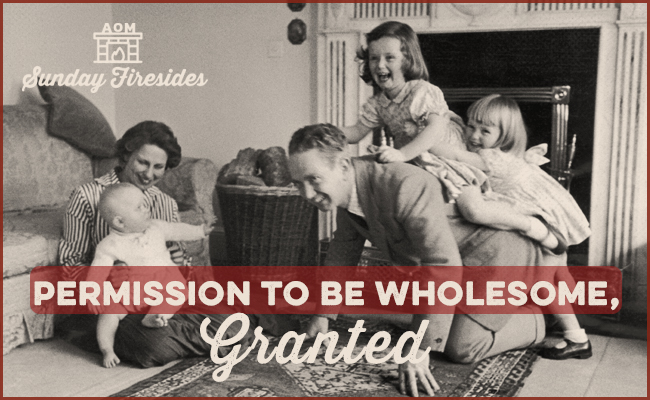
After being inspired by a family who exemplified genuine, guileless happiness to give up a hedonistic lifestyle and adopt their faith, a friend of writer Rod Dreher told him: “I realized later that I just needed somebody to give me permission to be wholesome.”
It’s a permission a lot of people these days seem to be waiting for.
The default pose of the modern citizen is one of disaffection and indifference. You evince a little edginess — hanging onto a few vices; peppering your speech with profanity — to show you’re not a square. You hold your beliefs and emotions at arm’s length, and frame them with ample cynicism, to demonstrate you’re not naive.
Yet there are times when you sense that while cultivating this kind of world-weary insouciance makes you feel cool, it doesn’t actually make you feel happy. Finding your on-the-ground experiences run contrary to the prevailing cultural zeitgeist, you think things like:
“I don’t actually enjoy drinking that much. It feels great to be sober.â€
“I really love my family. My kids feel like joys, not miniature terrorists or burdens. Eating pancakes on Saturday mornings, playing board games, and riding bikes together feel like some of the best parts of life.â€
“It feels great to be sincerely affectionate and achingly earnest with others. It feels great to be thoughtful, kind, and honest, even when, especially when, it’s not convenient.â€
“I feel like there’s still a ton to be grateful for, even when so much in the world is messed up. Heck, it feels great to smile, a lot.â€
You, of course, don’t actually need permission to lean into and act upon these observations. You just need some gosh-darn countercultural gumption. And, by golly, as you live with more goodness-embracing, contentment-creating wholesomeness, you’ll make it easier for others to make the same choice.


